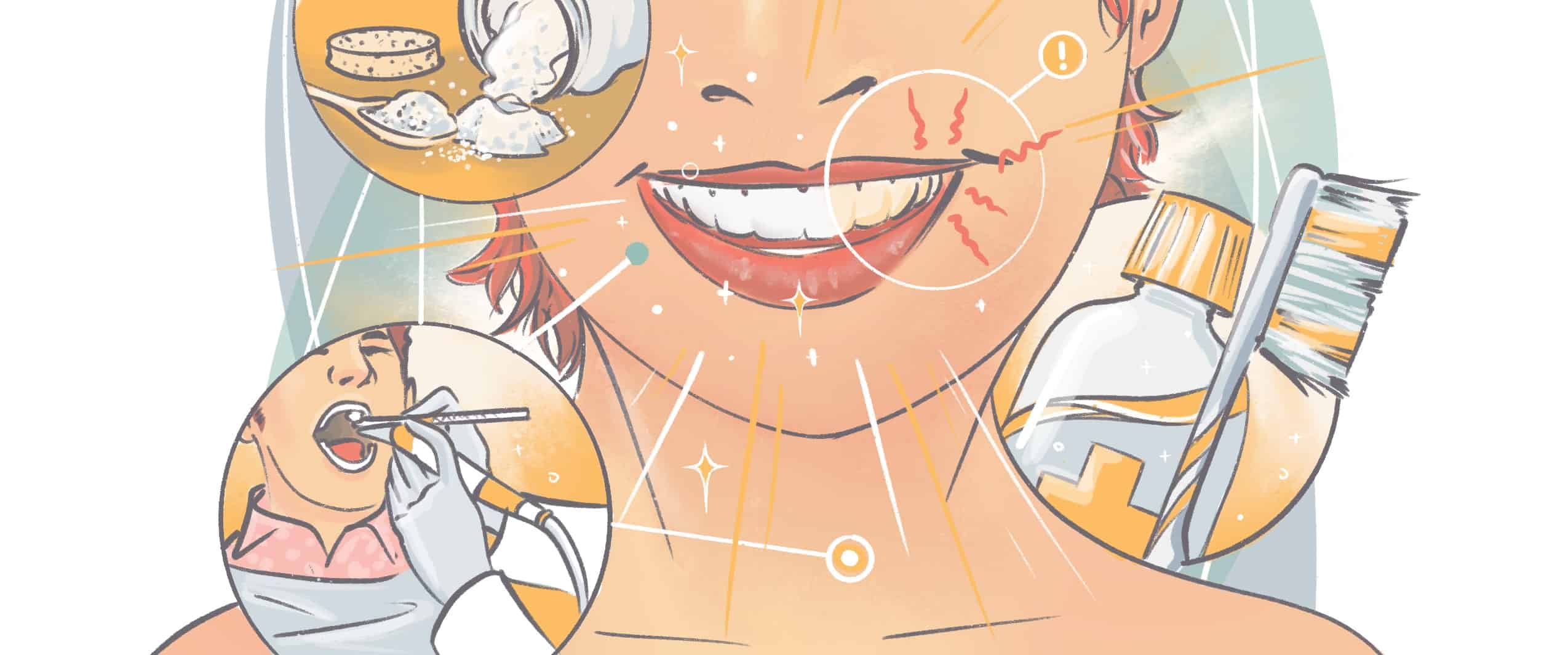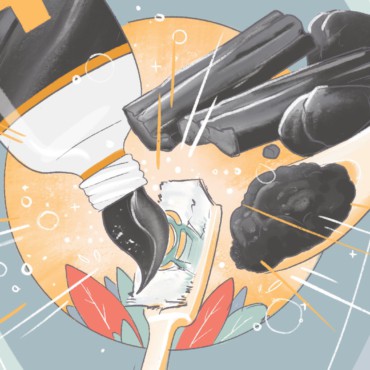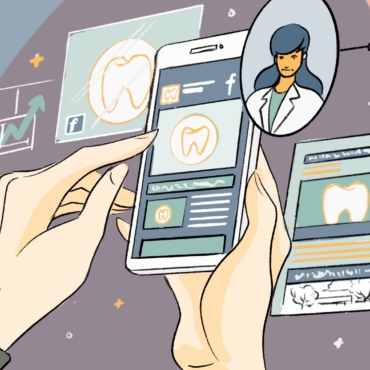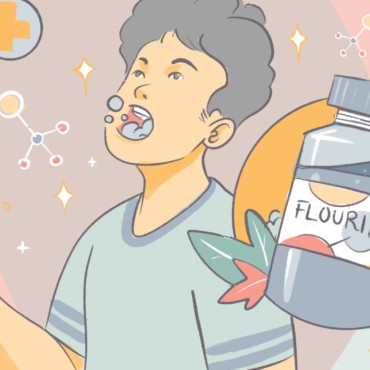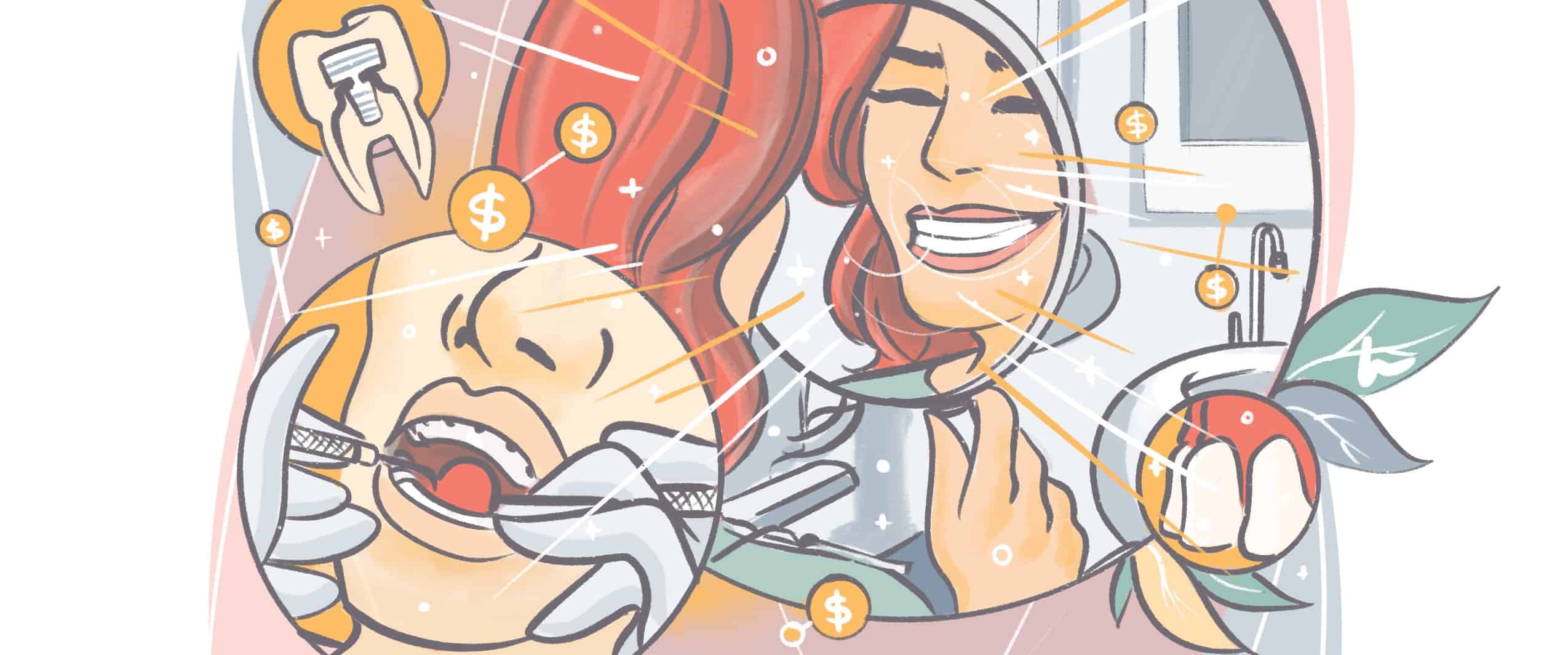Are you worried about your yellow teeth? Don’t worry, you’re not alone! More than half of Americans are insecure about their teeth. According to one study, 57% of us cover our mouths when we laugh. Let’s talk yellow teeth and their implication on the health of your mouth.
Are whiter teeth healthier?
So, are whiter teeth healthier? The truth is not all white teeth are completely healthy, nor are yellow stains necessarily unhealthy. Even individuals with perfectly white teeth can have tooth disease, according to the BBC. It’s important that the discoloration in question is not the result of tooth enamel damage, tooth disease, or decay. In these cases, you should find a dentist and get your teeth checked out.
Are teeth naturally yellow?
The healthiest teeth are the natural ones, and they’re not a bleached-white color. The surface of your teeth has a natural white hue, but the dentin layer right underneath features more yellow pigments.
In most of us, that yellow color tends to show itself more as we get older. Other factors also leave yellow stains.
What are the causes of yellow teeth?
Poor oral hygiene is a major culprit. It will cause your teeth to lose their shine and not appear as bright white as you want them to be. Also, poor hygiene will make your teeth prone to darker spots and vivid stains. Other reasons for discoloration include:
- Oral or dental disease
- Smoking or chewing tobacco
- Some foods and drinks like red wine, cola, coffee, etc.
- Some medications like high-blood-pressure medication, antipsychotic drugs, etc.
- Materials used in dentistry (like amalgam restorations packed with silver sulfide)
- Aging
- High fluoride exposure
- Tooth trauma
Based on cross-sectional research that evaluated 6,000 adults in the UK, smoking can cause significant tooth color change. Results showed 28% of smokers experienced moderate and severe tooth discoloration. While only 15% of those who didn’t smoke noticed a change in the color of their teeth.
How can I reduce tooth yellowing?
The quickest solution is to book a dentist appointment. Your dentist will help repair any enamel damage, do a thorough dental cleaning, or treat any tooth disease. Another easy way to reduce yellowing is simply to brush your teeth more regularly. Regular brushing with a proper toothbrush and flossing will help polish surface stains away.
Remember, practicing good oral hygiene should be your top priority. Not only will it prevent tartar and plaque build-up, but it will also reduce the risk of periodontal disease. Also, try to limit the intake of staining foods and drinks. Particularly coffee, curry, soy sauce, or balsamic vinegar. They are known for staining the teeth surface and leaving behind a yellow hue.
How can I get whiter teeth?
Getting a bright smile is not as hard as it looks. Try the following:
Whitening toothpaste
Consider swapping your typical toothpaste with a whitening product. This simple option can get rid of the stains and help avoid any stains in the near future. Some products can remove up to 80% of the stains in a short time.
Laser whitening
Although not the cheapest option, laser whitening is an effective method for brightening your smile. The peroxide whitening agents and in-office lasers create lasting and dramatic results. To try this option, contact a dentist near you to help determine if it will work for you.
Book a dental consultation.
Find a dentist near you to tell you more about getting started on this procedure.
Baking soda brushing
Plenty of commercial whitening products contain baking soda, and for a good reason. Studies show toothpaste with baking soda removes more yellow stains from the teeth than a typical toothpaste. Baking soda features natural whitening compounds. It’s also a mild abrasive.
Another benefit baking soda offers is that it forms an alkaline environment inside the mouth. Therefore, it may stop bacteria growth and boost overall oral health. To try this natural stain remover, combine two teaspoons of water with a teaspoon of baking soda. Mix it and brush the teeth with the solution. Repeat the same process a couple of times a week.
Hydrogen peroxide
Also known as a natural bleaching agent, hydrogen peroxide can help with stubborn teeth stains. A lot of whitening products containhydrogen peroxide.
Research indicates brushing teeth with peroxide and baking soda commercial toothpaste can cause 62% whiter teeth in about six weeks. But using concentration levels of hydrogen peroxide that are too high can be dangerous. It can irritate the gums and damage sensitive teeth.
Final thoughts
Teeth start to yellow with age. Damaging the enamel, eating stain-causing foods, or poor oral hygiene will only accelerate the process. Luckily, numerous strategies can reverse or slow the yellowing. You can use tooth-whitening products, like proper toothpaste. You can also go for at-home remedies that may prove useful.
No matter what you decide to try, it’s best to consult with a dentist first. They’ll help offer the best whitening treatments that will solve the problem. This is the ideal way to get a treatment option that’s tailored to your needs.
Due for a checkup?
Find a top rated dentist near you that takes your insurance.

